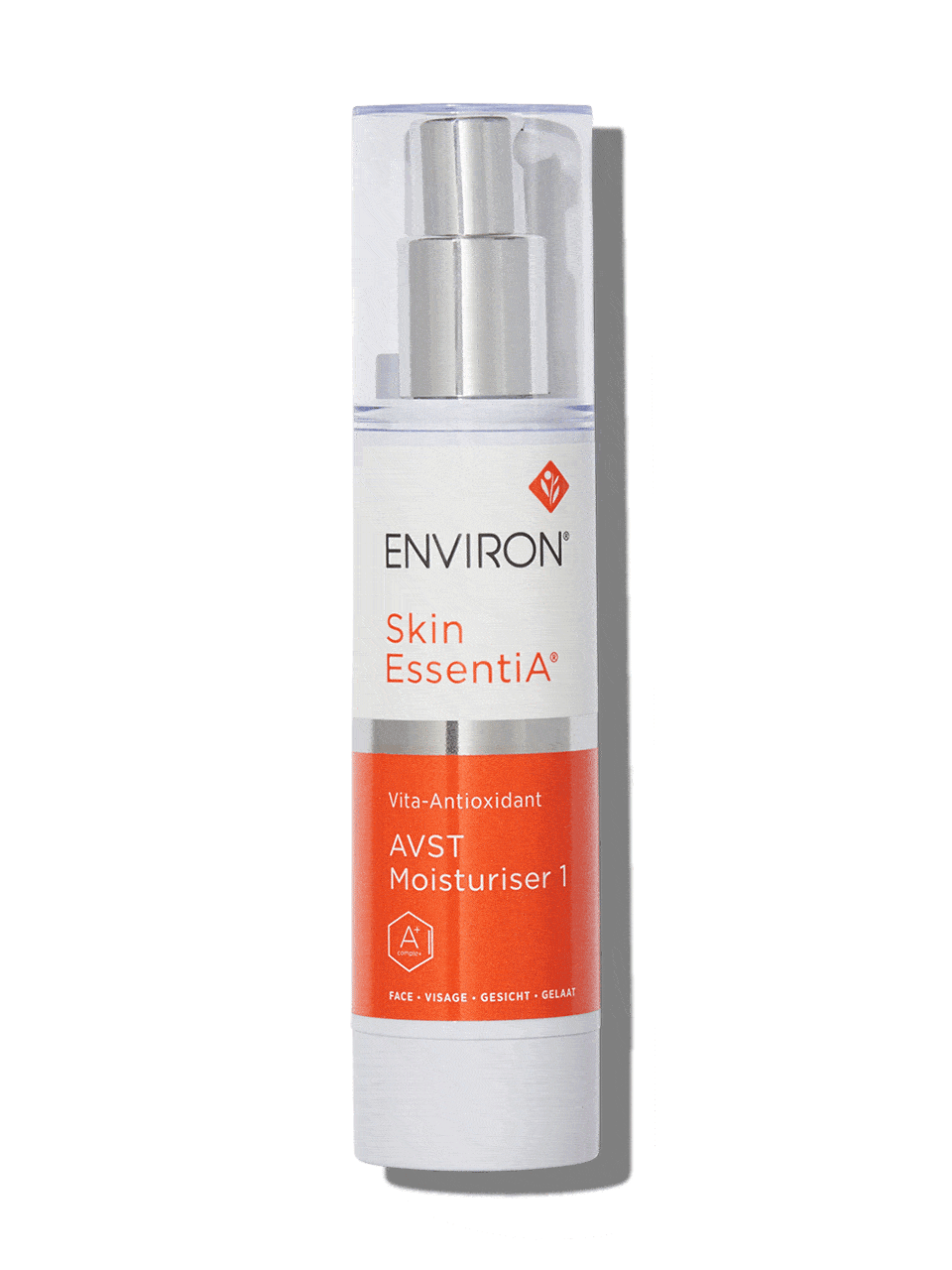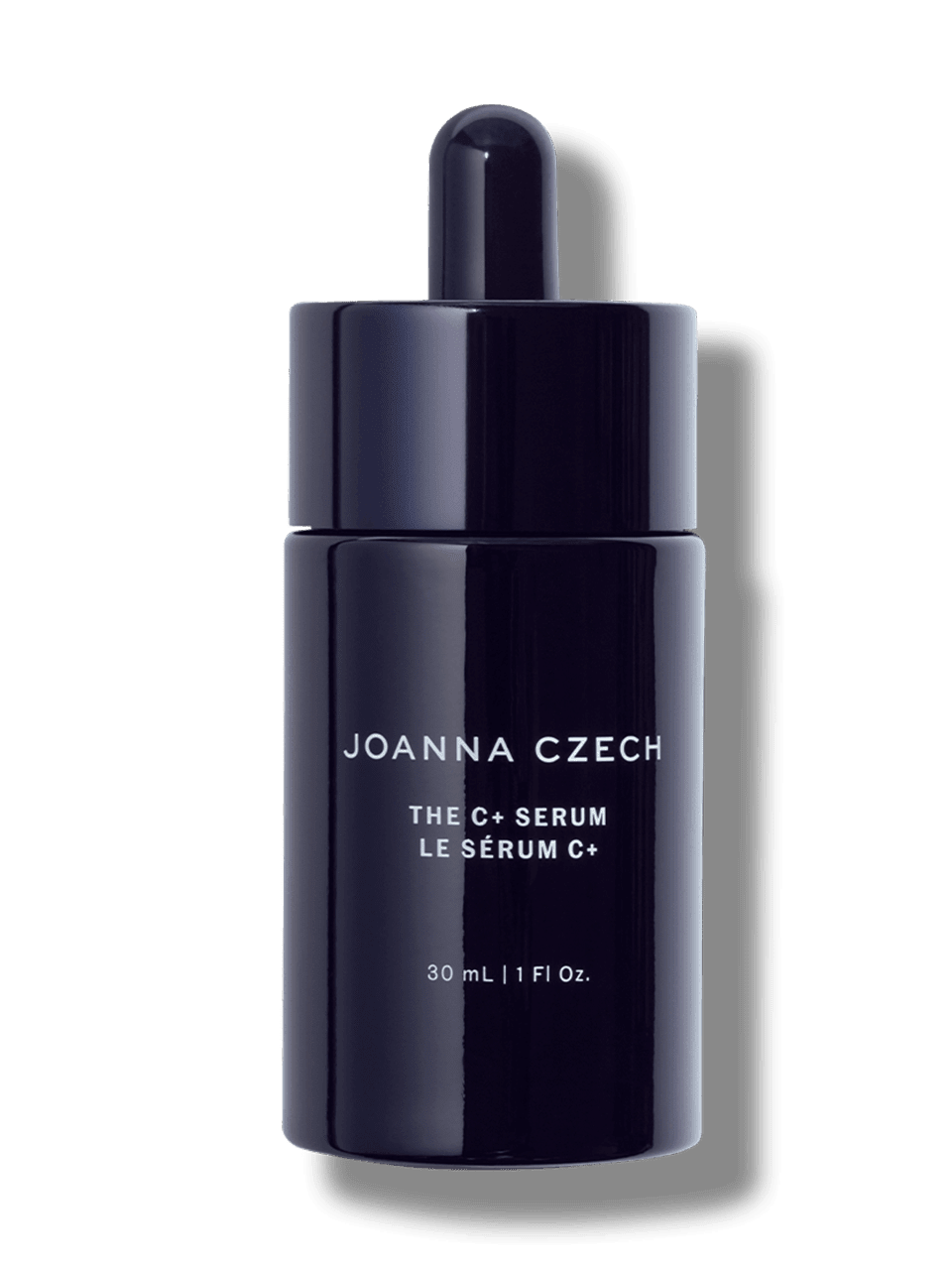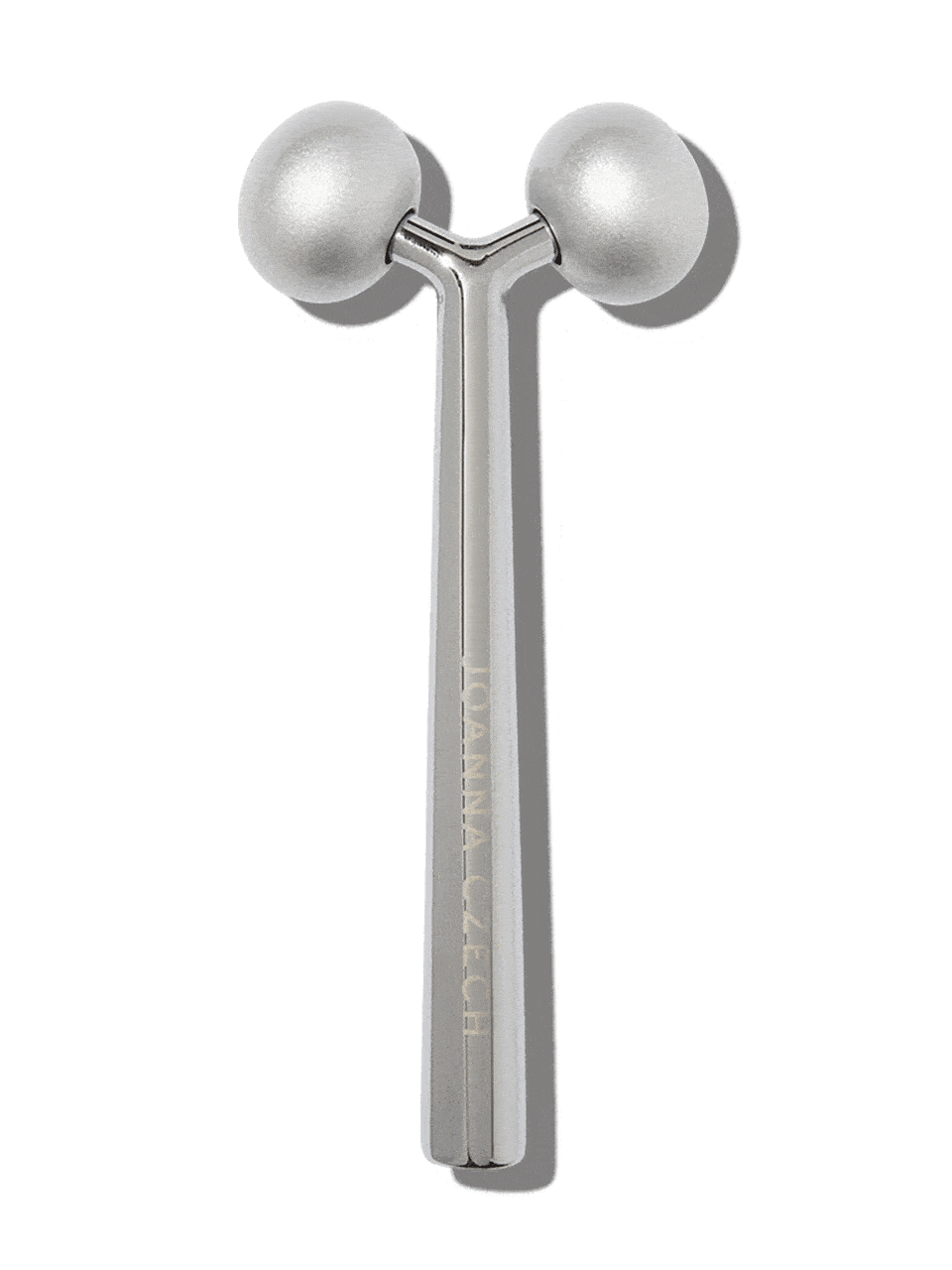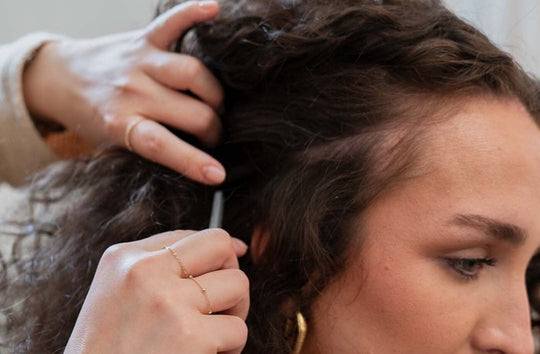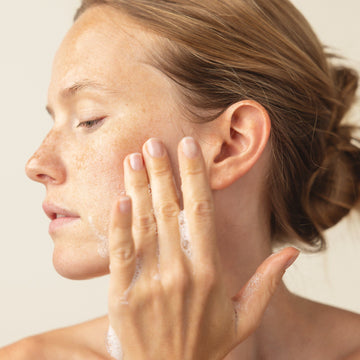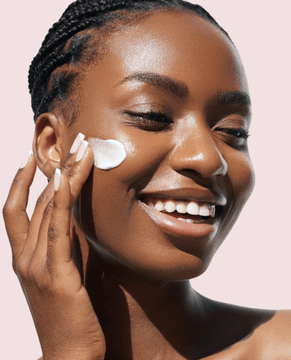Understanding the Role of Collagen in Skincare

In the realm of skincare, few components are as pivotal as collagen. As the cornerstone protein that lends skin its firmness, elasticity, and youthful appearance, collagen plays a vital role in maintaining a healthy complexion.
One of the primary components of my skincare philosophy is supporting the skin’s collagen production at a cellular level using products, tools, and lifestyle adjustments instead of invasive procedures.
Here’s how collagen contributes to youthful skin and my go-to collagen boosting strategies.
What is collagen?
Collagen is the most abundant protein found in the human body. It provides structural support and strength to our skin, bones, muscles, tendons, and ligaments. It is responsible for maintaining the firmness, suppleness, and elasticity of the skin and contributes significantly to the renewal of skin cells.
Collagen is composed of amino acids, primarily glycine, proline, and hydroxyproline, which are arranged in a unique triple-helix structure. This structure gives the protein strength and stability, making it an essential component of the body's connective tissues.
In addition to its structural role, collagen also plays a crucial role in wound healing and tissue repair. It has been shown to stimulate the growth of new blood vessels and to promote the production of new skin cells, making it a popular ingredient in skincare products.
Collagen's contribution to youthful skin
Collagen maintains skin firmness, elasticity, and radiance—all essential characteristics of youthful skin. It also supports skin's ability to heal and repair.
Collagen depletion in the skin leads to a range of noticeable effects that collectively contribute to the signs of aging. As this essential protein diminishes, the skin undergoes several changes, including:
-
Fine Lines and wrinkles: Collagen provides the skin with structure and support. Its decline results in the loss of skin firmness and elasticity, leading to the formation of fine lines and wrinkles, particularly in areas prone to repetitive movement like the forehead, around the eyes, and mouth.
-
Sagging and Loss of Firmness: Collagen loss weakens the skin's underlying structure, causing it to lose its ability to resist gravity. This results in sagging, especially along the jawline, cheeks, and neck. The skin may appear less lifted and youthful.
-
Thinning of the Skin: Collagen depletion can lead to a reduction in the thickness of the skin. This makes blood vessels more visible and can result in a translucent or fragile appearance, particularly in areas like the back of the hands.
-
Decreased Skin Resilience: Collagen is responsible for the skin's ability to "bounce back" after being stretched or compressed. As collagen levels decrease, the skin becomes less resilient.
-
Impaired Wound Healing: Collagen is essential for proper wound healing. Its decline can lead to slower healing of cuts, bruises, and other skin injuries. This can also increase the risk of scarring.
- Dryness and Dullness: Collagen depletion can contribute to reduced hydration levels in the skin. This results in a dry and dull complexion as the skin's ability to retain moisture diminishes, sometimes leading to compromised barrier function and increased sensitivity.
What factors lead to collagen loss?
Collagen loss in the skin is influenced by a combination of intrinsic factors like age and extrinsic factors. Understanding these factors and taking steps to minimize their impact can help preserve collagen production and maintain healthier, more youthful skin.
-
Age: The most significant factor contributing to collagen loss is age. Collagen production naturally declines as we get older. This is primarily due to the slowing down of cellular processes and decreased efficiency of collagen-producing cells called fibroblasts. This phenomenon is a fundamental component of the aging process, resulting in the formation of fine lines, wrinkles, and a loss of skin firmness.
-
UV Radiation Exposure: UV radiation from the sun is one of the most damaging external factors that contribute to collagen loss. UV radiation generates reactive oxygen species (ROS) that cause oxidative stress, promoting the degradation of existing collagen and inhibiting collagen synthesis. This process is known as photoaging.
-
High-Sugar Diet: Excess sugar molecules in the bloodstream can bind to collagen fibers through a chemical reaction known as glycation. This process forms advanced glycation end-products (AGEs), which accumulate over time and impair the structural integrity of collagen, making them more rigid and less functional.
-
Smoking: Smoking introduces harmful chemicals into the body that decrease blood flow and impair oxygen delivery to skin cells. This reduces the vitality of fibroblasts and hampers their ability to synthesize collagen. Additionally, smoking promotes the release of enzymes that break down existing collagen fibers.
-
Environmental Pollutants: Air pollutants and toxins can trigger inflammation and oxidative stress in the skin. Chronic inflammation disrupts collagen synthesis and accelerates its breakdown. Oxidative stress generates free radicals that damage collagen fibers and interfere with the cellular processes involved in collagen production..
- Autoimmune Disorders: Certain autoimmune disorders, such as systemic lupus erythematosus (SLE) and rheumatoid arthritis, can lead to collagen loss. In autoimmune conditions, the immune system mistakenly attacks healthy tissues, including collagen-rich connective tissues.
Strategies to Boost Collagen Production
Promoting natural collagen production using vitamin A and C infused skincare products and the right tools and devices are critical components of a noninvasive skincare regimen.
Topical collagen creams and collagen oils sound like a good idea, but unfortunately, there is no conclusive evidence that they provide any anti-aging benefits. Although topically applied collagen can help to moisturize the skin, its molecular weight is too high to penetrate the epidermis and produce any significant impact.
Retinoids
Retinoids (e.g., retinol, retinoid acid, vitamin A) are a collagen boosting ingredient crucial to maintaining a youthful complexion and reducing the appearance of wrinkles and fine lines. Vitamin A boosts collagen production by stimulating fibroblasts, the cells responsible for collagen synthesis, and promoting the formation of healthy collagen fibers in the skin. Environ’s step-up collections are my go-to vitamin A products.
Topical Vitamin C
Vitamin C is essential for collagen production as it acts as a cofactor for enzymes involved in collagen synthesis, specifically prolyl and lysyl hydroxylases. Additionally, vitamin C is an antioxidant that helps protect collagen from damage caused by free radicals, ensuring the integrity and stability of collagen fibers in the skin.
Face Massage
Massage stimulates blood flow, bringing more oxygen to the tissue, which can increase collagen and elastin production. By consistently following this routine, you can achieve great results in as little as seven minutes per day.
LED
I have been using LED (Light Emitting Diode) Therapy in my treatments and on myself at home for over 20 years. The non-invasive tool boosts collagen production, addresses fine lines and wrinkles, combats acne and redness, and increases product efficacy. As a Class II medical device featuring professional-grade LEDs, The Celluma Pro LED Panel is my top choice.
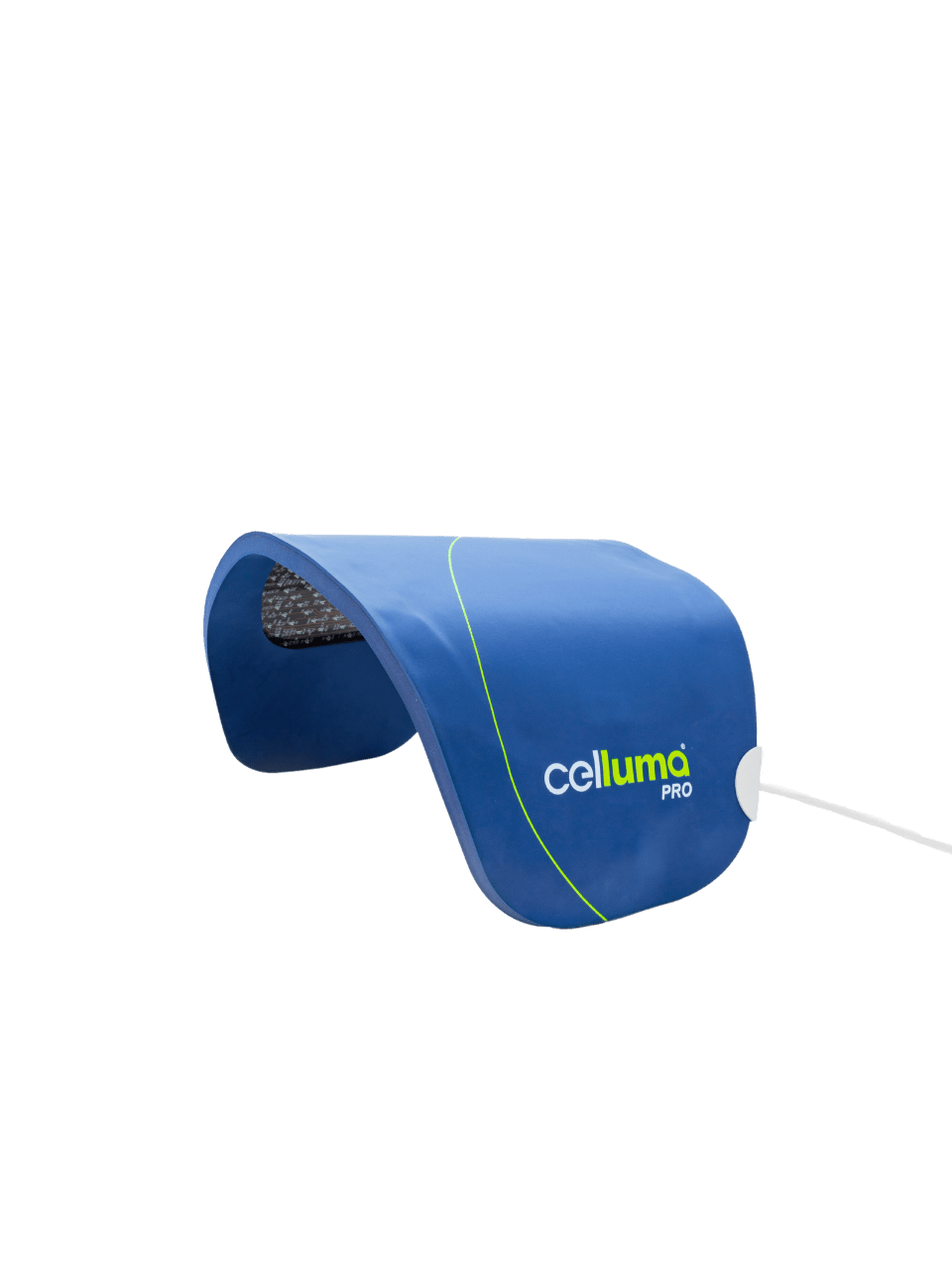
Celluma
Celluma Pro At-Home Light Therapy Device
Laser treatment
Traditional laser treatments are aggressive and require multiple sessions that damage the skin to trigger it to make collagen. The LYMA Laser is an at-home cold laser that promotes collagen production and improved skin elasticity with zero downtime.
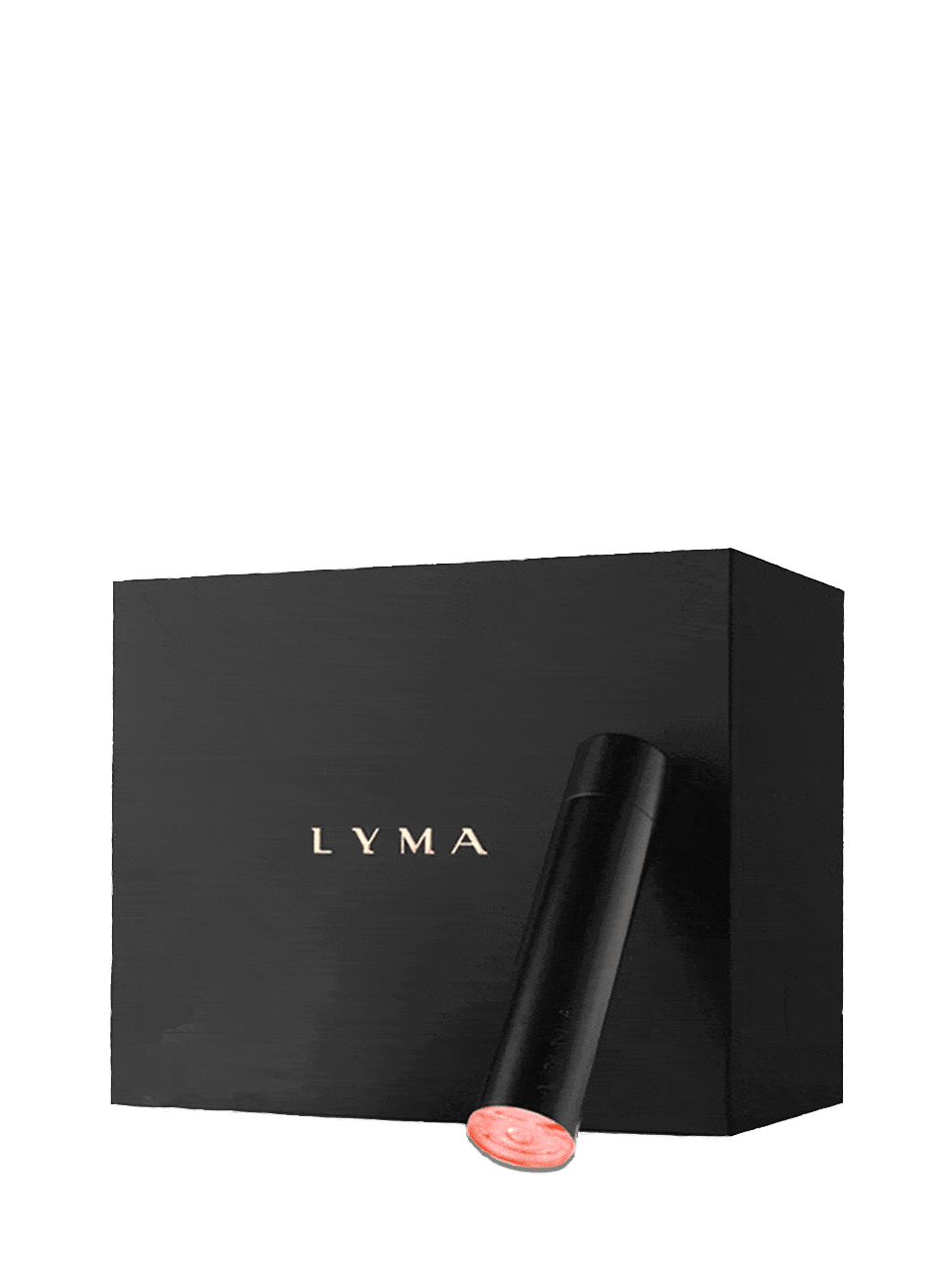
LYMA
LYMA Laser
Lifestyle Adjustments for Collagen Preservation
There’s no way to control getting older, BUT there are a few preventative measures you can take to preserve collagen beyond skincare alone. Like we mentioned earlier, oxidative stress from UV exposure accelerates the breakdown of collagen and elastin. So, not surprisingly, sun protection is where you should start. Use sunscreen when you are outdoors for more than 20-30 minutes and the UV index is high.
A healthy diet that contains certain key nutrients can help the body produce collagen. High protein foods are rich in amino acids and critical to collagen synthesis, like eggs, fish, dairy, and meat. Other sources include anthocyanins found in berries, copper in shellfish and nuts, vitamin C in oranges and strawberries, and vitamin A in dark green leafy greens, sweet potatoes, mangoes, papaya and carrots. Bone broth and collagen powders are other easy ways to promote anti aging and healthy tissues from the inside out.
Elevated cortisol levels can lead to collagen breakdown, diminishing skin elasticity and contributing to premature aging. Therefore, effective stress management practices, such as relaxation techniques, regular exercise, and mindfulness, play a pivotal role in preserving collagen integrity and promoting overall skin health.
Understanding the effects of collagen depletion on the skin underscores the importance of collagen preservation and support in your skincare routine. By adopting consistent practices that promote collagen production and maintenance, you’ll help mitigate the visible signs of aging and maintain healthier, more youthful-looking skin.
